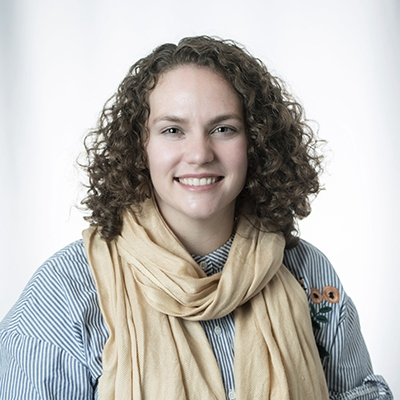#MyLibraryMyStory Guest Post: Protecting Our Most Vulnerable
Protecting Our Most Vulnerable
by Cassie Sheets, Educator
Hello Library Advocates,
During National Library Week, let’s celebrate the ways that libraries protect children’s privacy. During my brief stint working as a library assistant, I learned about the many ways that librarians support vulnerable populations in their communities. I found that the protection of kids’ rights was particularly exceptional. Rarely does a minor have the right to privately consume information without guardians being able to access a record of their search history, but many libraries afford that right to children.


photo by Laura Verhaeghe Photography
Outside of a library context, children are typically afforded fewer legal rights than adults. While adults can privately process intimate moments of selfhood, kids are often concerned about adults’ reactions to their self exploration. For instance, as a child, I was constantly concerned about keeping my closeted bisexuality a secret from adults. Either my local library didn’t protect kids’ privacy or they didn’t advertise the fact that they did. Therefore, I didn’t know that I could read books with non-heterosexual characters and have my booklist kept secret from my parents. I was concerned because the initial reactions I received when considering my orientation out loud with adults were homophobic knee-jerks. Differently, when I shared my orientation with other kids, I received less judgment. Perhaps my fellow kids hadn’t yet adopted the homophobic values of our surrounding community. If adults’ prejudices are limiting children’s identity development, how important does a child’s private investigation of self become? Invaluable. Hence, thank you, librarians, for allowing kids to explore the world and their place in it independently from adults.
Let’s expand on the sociopolitical reasons why it’s important to protect kids’ reading privacy. Sometimes children don’t want to be like the adults around them, in values, culture, or experiences. A step further, some kids cannot alter their identities to reflect the values of adults around them, which makes them particularly vulnerable to Otherization from their local communities. That’s why studies like ALA’s Diversity Counts survey, which exposed the homogeneity of our librarian landscape, are so valuable. As library advocates, we know a large part of identity creation is processed through interpretation, meaning-making, and negotiations with the media with which children interact. Even in moments of literary processing without adults, kids are affected by librarians’ collection development decisions and policies. When I’m helping to run School Library Journal Cultural Literacy and Diversity workshops, we encourage librarians to offer materials that reflect their diverse community of readers, as well as authentically represent cultures that aren’t present or as apparent in their local communities. (See Rudine Sims Bishop’s seminal piece “Windows, Mirrors, and Sliding Glass Doors”, Debbie Reese’s addition of “curtains” to the metaphor in her American Indian in Children’s Literature blog, and the #ownvoices movement to follow these important conversations in the children’s literature landscape.) Beyond protecting each child’s privacy, librarians need to address their own cultural blindspots, implicit biases, and privilege if they’re committed to allowing children the freedom to find and create themselves without limitation. The overall tone of a library’s collections and displays sends messages to children about which types of people are included or excluded in their local communities.
And why are libraries the protectors of young people’s rights, when kids have school and bookstores as additional options for self exploration? Well, for three reasons: 1) school classrooms have the presence of an adult instructor, who as well-intentioned and caring as they may be, affect the way kids process literature through assessment-driven requirements; 2) kids probably don’t have access to the resources necessary to make purchases at bookstores independently from adults; 3) many adult guardians don’t have resources to buy books for their children either; stagnant working-class wages and a weak social safety welfare net mean that many families rely on libraries to afford their kids literary exploration and intellectual pleasure. No wonder public libraries have been called the bedrock of democracy in recent debates! (See reactions to Professor Panos Mourdoukoutas’s claim that Amazon should replace public libraries.)


It might be helpful for us to remember how similar kids are to adults in their need for privacy. For instance, consider some of the most beautiful moments you’ve had interacting with literature throughout your life. I had one last week, when my chocolate lab best friend of 14 years passed away. In trying to make meaning out of the relationship we formed from college onward, I turned to literature to express myself. I now have a quote from Tolkien’s The Two Towers tattooed on my Achilles, because that was my dog’s name: “Frodo wouldn’t have got far without Sam.” Achilles was a great hiker and literally helped me explore the world. He also metaphorically supported me through difficult family challenges and helped shape my adult identity in teaching me how to take care of another life. What better metaphor than the bond created by hobbits on their journey through Mordor to represent our relationship?
Of course kids can’t ink themselves up, but perhaps a poster in a bedroom or a doodle on a school notebook are equivalents in self-expression and displays of meaning to others. However, different moments are meant to be born alone because of the intimacy of the situation. I put a clipping of Achilles’s hair in the box that holds my wedding ring at night. Next to the container, I have a copy of Susan Varley’s Badger’s Parting Gifts. Each time I read about the animals grieving the death of their friend Badger, I too, process my own grief for Achilles. Do I want to share that literary moment with anyone else? No, it’s just for me and my memory of Achilles. Why do kids need privacy in interacting with literature? For the same reason adults need privacy. Sometimes things aren’t for sharing, but for keeping to oneself.


Libraries are places where kids can keep things to themselves and, if they choose to, share the meaning they’ve found with others to build a sense of community. It can be scary handing over some of our adult power to kids. Of course there are moments that adults need to intervene to ensure kids are safe in their judgments, but the library is a place where kids can develop muscles of independence safely. In addition to independent exploration, kids will also be directed through adult-driven programming in libraries, classrooms, community organizations, and families. Instead of trying to facilitate kids’ literary and meaning-making paths all of the time, let’s instead keep giving them libraries and filling those libraries with the most diverse collections possible so that kids can authentically consider identity development for themselves. Ensuring that your library embraces a philosophy of diversity can’t be a passive effort, which is why I encourage librarians to follow critics, writers, publishers, educators, and fellow librarians in their discussions about how to effectively implement diversity efforts.
As adults interested in educating children, we’re charged with managing the discomfort of discussing our sociopolitical positions in society and listening to those who are less empowered. It’s our responsibility as the organizers of literary materials to constantly educate ourselves and listen to cultural experts—those who have lived experiences as community insiders—about how to give all of our kids unfettered access to literature and then to trust kids with that path of independent self-exploration. After all, allowing everyone to feel seen and valued is a fundamental purpose of literature and of life.
Thank you, librarians, for protecting kids’ right to become themselves.
Sincerely, Cassie Sheets


Cassie Sheets holds a master's in sociology from University of Montana and a master's in children's literature from Simmons University. She teaches sociology courses at University of Montana, manages the Boston Globe-Horn Book Awards, and freelances as an editorial assistant for Charlesbridge Publishing. She does consultant work for Cultured Kids—a multicultural education nonprofit—and is a facilitator for School Library Journal's Cultural Literacy and Diversity workshops. Her interests include prejudice-reduction educator training and inclusive children's literature curriculum.



